(BlackFitness101.com) Running is one of the most accessible and effective forms of exercise. It requires minimal equipment, can be done virtually anywhere, and offers a host of physical and mental health benefits. However, running in the summer presents unique challenges that can affect your performance and safety. As a fitness trainer with years of experience guiding athletes through seasonal training, I’ve compiled a comprehensive guide to help you navigate the summer heat while maintaining your running routine. Here are seven essential tips for running in the summer, along with a detailed discussion on how running can significantly improve your health.
1. Stay Hydrated
Hydration is paramount when running in the summer. High temperatures increase the risk of dehydration, which can lead to heat exhaustion or even heat stroke. Here are some strategies to ensure you stay properly hydrated:
Pre-Run Hydration
Begin hydrating well before your run. Aim to drink at least 16-20 ounces of water two hours before you start. This will give your body ample time to absorb the fluids and help you start your run well-hydrated.
During Your Run
Carry a water bottle or hydration pack with you. For runs lasting more than 30 minutes, sip water every 15-20 minutes. In extreme heat, consider adding an electrolyte drink to your hydration strategy to replenish the sodium, potassium, and other minerals lost through sweat.
Post-Run Rehydration
Rehydrate after your run by drinking water and consuming foods with high water content, such as fruits and vegetables. An electrolyte solution can also be beneficial, especially after a long or intense run.
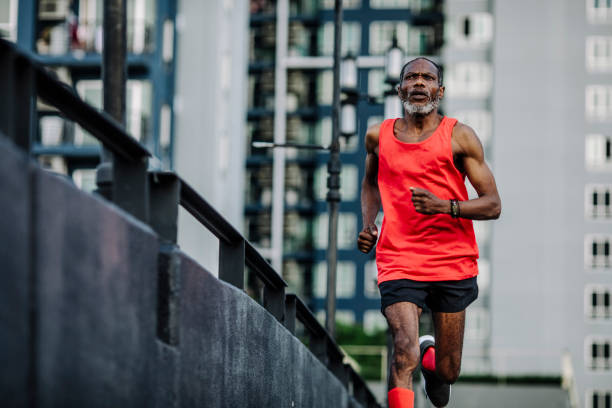
2. Choose the Right Time of Day
The timing of your run can significantly impact your comfort and performance. During the summer, aim to run during the cooler parts of the day:
Early Morning
Running early in the morning is often the best option. Temperatures are lower, and the sun’s rays are less intense. This time of day also offers the benefit of quieter streets and trails, providing a peaceful start to your day.
Late Evening
If morning runs aren’t feasible, consider running in the late evening. While temperatures may still be high, the sun’s intensity will have diminished, reducing the risk of heat-related issues.
Avoid Midday Runs
The hours between 10 a.m. and 4 p.m. are typically the hottest part of the day. Avoid running during these times to reduce the risk of overheating.
3. Wear Appropriate Clothing
Choosing the right gear can make a significant difference in your summer running experience. Here are some key considerations:
Lightweight and Breathable Fabrics
Opt for clothing made from lightweight, moisture-wicking fabrics. These materials help draw sweat away from your body, allowing it to evaporate more quickly and keeping you cooler.
Light-Colored Clothing
Light-colored clothing reflects sunlight, whereas dark colors absorb it. Wearing light colors can help keep your body temperature down.
UV Protection
Consider clothing with built-in UV protection, and don’t forget to apply sunscreen to exposed skin. Look for a broad-spectrum sunscreen with an SPF of 30 or higher and water-resistant properties.
Proper Footwear
Choose running shoes designed for hot weather. Look for breathable materials and good ventilation to help keep your feet cool. Moisture-wicking socks can also prevent blisters caused by sweaty feet.
4. Adjust Your Pace
Summer heat can significantly affect your running performance, so it’s important to adjust your pace accordingly:
Listen to Your Body
Pay attention to how your body feels and adjust your pace as needed. If you’re feeling overheated or fatigued, slow down or take walking breaks. Running at a slower pace can help your body acclimate to the heat.
Use Effort-Based Training
Instead of focusing solely on pace, use perceived effort as a guide. Run at an effort level that feels comfortable and sustainable, even if it means running slower than usual.
Incorporate Interval Training
Interval training, which alternates between high and low-intensity efforts, can be an effective way to maintain fitness while managing heat stress. Run at a high intensity for a short period, followed by a recovery period of walking or slow jogging.
5. Plan Your Route
Choosing the right route can make a big difference in your summer running experience:
Seek Shade
Whenever possible, choose routes with plenty of shade. Running in shaded areas can significantly reduce your exposure to direct sunlight and keep you cooler.
Run Near Water
Running near bodies of water, such as lakes, rivers, or the ocean, can provide a cooling effect. These areas often have cooler temperatures and refreshing breezes.
Loop Courses
Plan a loop course that brings you back to a central location where you can leave water, snacks, and extra gear. This way, you can easily access hydration and take breaks as needed.
6. Acclimate to the Heat
Your body can adapt to running in the heat, but it takes time. Gradually increasing your exposure to high temperatures can help your body acclimate:
Gradual Exposure
Start by running in the heat for short periods and gradually increase the duration over time. This helps your body adjust to the higher temperatures and reduces the risk of heat-related issues.
Consistency
Regular exposure to heat will help your body become more efficient at cooling itself. Aim for consistent, moderate-intensity runs in the heat rather than sporadic, high-intensity efforts.
Cool Down Properly
After your run, take the time to cool down properly. Find a shaded area, drink water, and use a cold towel or ice pack to help bring your body temperature down.
7. Listen to Your Body
Perhaps the most important tip for running in the summer is to listen to your body. Pay attention to the signs of heat-related issues and take action promptly:
Signs of Dehydration
Look out for signs such as dry mouth, dark urine, dizziness, and excessive thirst. If you experience these symptoms, stop running and rehydrate immediately.
Heat Exhaustion and Heat Stroke
Be aware of the symptoms of heat exhaustion (heavy sweating, weakness, confusion) and heat stroke (hot, dry skin, rapid heartbeat, fainting). If you experience any of these symptoms, seek medical attention immediately.
Recovery
Give your body adequate time to recover after a run. Rest, rehydrate, and refuel with a balanced meal to replenish energy stores and aid in recovery.
The Health Benefits of Running
Running offers a myriad of health benefits that extend beyond physical fitness. Here’s a closer look at how running can improve your overall well-being:
Cardiovascular Health
Running strengthens the heart and improves circulation. It increases your heart rate, which in turn enhances the heart’s ability to pump blood efficiently. Regular running can lower your risk of heart disease, hypertension, and stroke.
Weight Management
Running is an effective way to burn calories and manage weight. It increases your metabolic rate, helping you burn more calories even at rest. Combined with a balanced diet, running can help you achieve and maintain a healthy weight.
Mental Health
Running has profound effects on mental health. It releases endorphins, the body’s natural mood elevators, which can help reduce symptoms of depression and anxiety. Running also provides a sense of accomplishment and can boost self-esteem.
Bone and Joint Health
Contrary to the belief that running is bad for your joints, it can actually strengthen bones and improve joint health. Running increases bone density, reducing the risk of osteoporosis. It also strengthens the muscles and ligaments around the joints, providing better support and stability.
Immune System Boost
Regular running can strengthen your immune system, making you less susceptible to illnesses. It enhances the circulation of immune cells, helping the body fight off infections more effectively.
Improved Sleep
Running can improve the quality of your sleep. It helps regulate your sleep patterns and increases the time spent in deep sleep, which is crucial for physical and mental recovery.
Longevity
Studies have shown that regular runners tend to live longer than non-runners. Running can add years to your life by reducing the risk of chronic diseases and improving overall health.
Social Connections
Running can also enhance your social life. Joining running groups or participating in races can introduce you to like-minded individuals and foster a sense of community.
In conclusion, running in the summer requires careful planning and consideration, but with the right strategies, it can be a highly rewarding experience. By staying hydrated, choosing the right time of day, wearing appropriate clothing, adjusting your pace, planning your route, acclimating to the heat, and listening to your body, you can enjoy all the benefits that running has to offer while staying safe and comfortable in the summer heat. Embrace the challenge, and happy running!
Staff Writer; Leroy Smith
Questions? Feel free to email me at; LSmith@BlackFitness101.com.








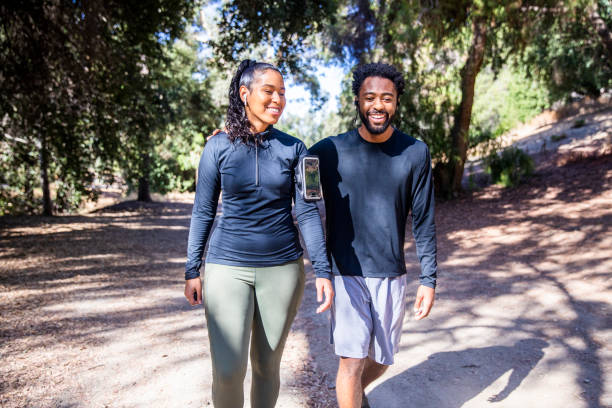
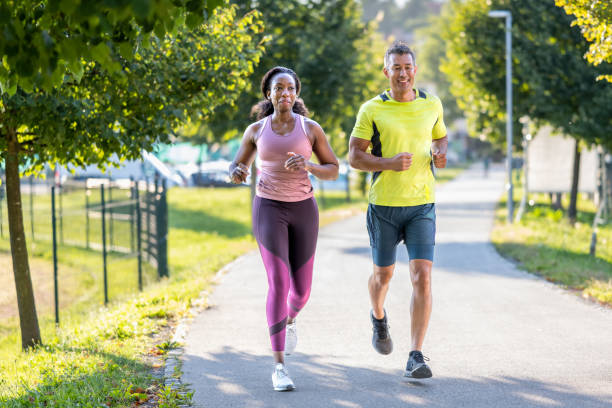
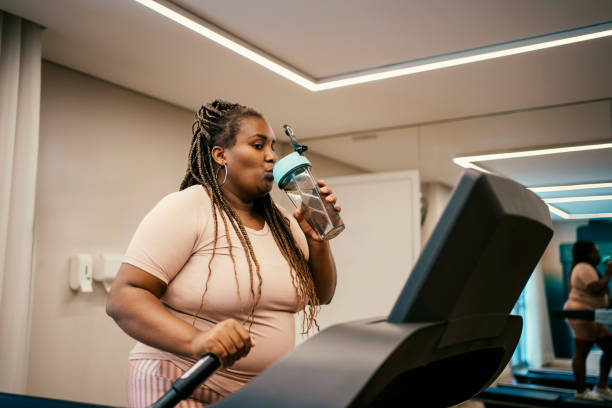
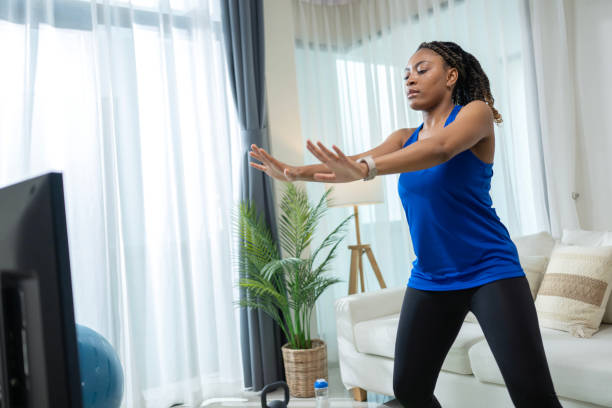
Leave a Reply